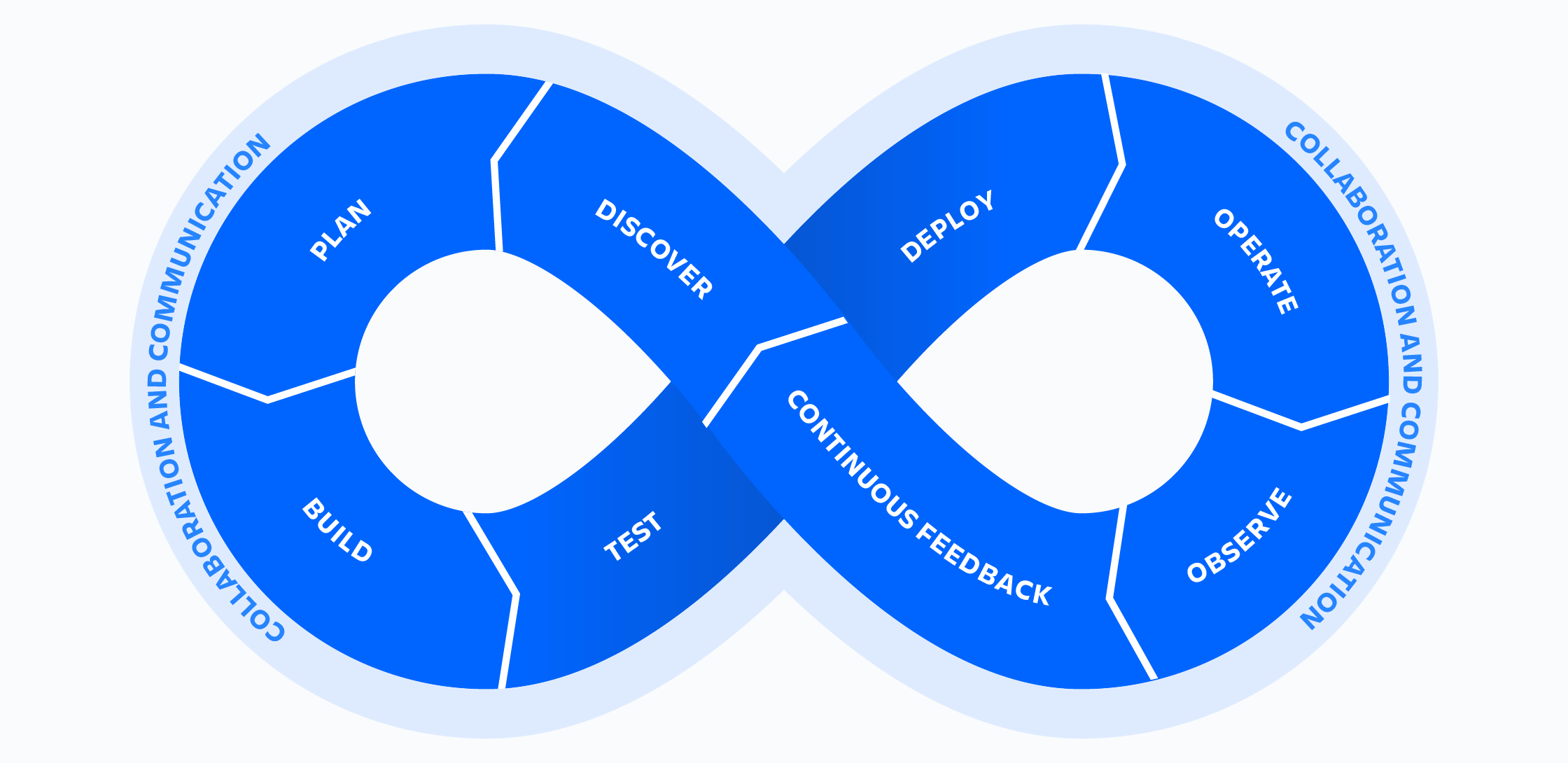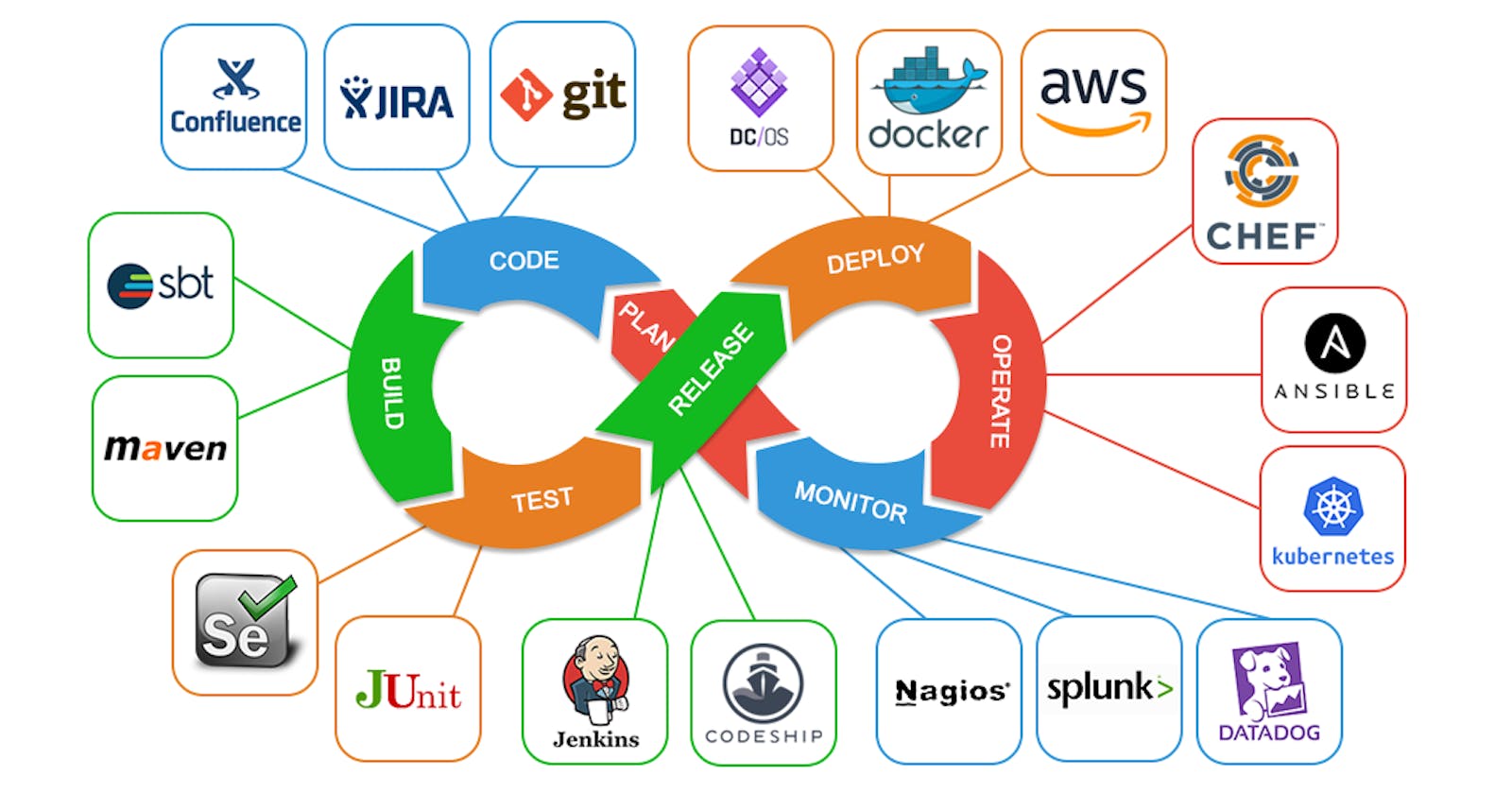Hey guys! Welcome back to our new blog. Today we will cover one of the most searched and demanding skills in 2023 - DevOps. At the end of this blog, you will not doubt what DevOps is and all the stuff you need to know to get started with it.
What is DevOps?
The very basic answer will be DevOps is made of two terms- Development and Operations. So the definition of DevOps will be as follows-
DevOps is a philosophy of culture, practices, and tools that helps in automating and integrating the processes between software development.
The main reason for DevOps is that it automates and enables efficient cross-team communication and collaboration.
Why do we need DevOps?
This whole DevOps thing came into the picture in 2007 by some reports. It was the time when software development and some of their communities around the globe raised concerns about software development models that were used traditionally.

As I said earlier DevOps is the combination of the two terms of Development and operations. So one of the main features of DevOps is that it reflects the process of combining these two operations (Development and Operations) into one and a continuous process.
Just Like DevOps, There is another term which is DevSecOps.
What is DevSecOps?
So DevOps is not only restricted to being used by development teams. It's highly efficient in security in development.
So when the approach of DevOps is adopted by teams of security which is as important as development or we can say an integrated part of the development we call it DevSecOps.
Hope you now get the idea of what DevOps is all about and if its suits your area of interest or not. Now let's enter into some technical side of it and see how it works.
How does DevOps work?
DevOps is a collaboration of software developers and IT operations working as a team in order to achieve the needful. Now the question is what are the needs? So the needs are -
To increase the speed of the software deployment.
To maintain and improve the quality of the deployment.
You can see it as a culture shift that brings significant changes in the organizations as a whole.
Now you must be thinking how do they do it? so this is done by some tools that the DevOps team use which helps increase reliability.

Now let's see the fundamental of DevOps that is very important to tackle and they are -
Continuous Integration -
Continuous Delivery
Automation
Collaboration
These all are needed to be taken care of because, without these, operations will not be efficient.
What is the Work Flow of DevOps?
DevOps follows a lifecycle that depicts all kinds of operations needed to perform to achieve the needful. There are total eight(8) operations as follows-
Discover: In preparation for building software it is important to prioritize ideas. Ideas backed by strategic goals that can deliver customer impact are important.
Plan: Planning the practices to improve the speed and quality should be adopted by the team
Build: The most efficient tool that can help is Git, it is a free and open-source version control system. The support given by it is phenomenal like branching, merging, and rewriting the repository history, etc.
Test: Here is where continuous integration(CI) comes in handy. It allows multiple developers to contribute to a single repository. They can merge the changes and automated tests are run to ensure efficiency before it actually gets integrated.
Deploy: Now here is where continued Deployment comes into the picture. Simply it's a way to deploy your project in an automated way. This helps in improving the productivity and velocity of the software development team.
Operate: This particularly takes care of the practices that involve the overall design, deployment, and maintenance.
Observe: It is an issue resolver which impacts the speed and functionality.
Continuous Feedback: A good DevOps team always evaluates each and every release that generates the report. This helps the teams to know where they are lacking and what is need to do.
Now let's see what are the benefits of learning or Using DevOps
What are the top 5 benefits of DevOps?
The various basic benefits of DevOps are easier and faster releases, team efficiency, improved security, and quality of the product. Let's discuss it in more detail -
Speed: It plays a major role in deploying the software. It has been seen in multiple projects that teams that have been using DevOps deliver more frequently without compromising quality and stability.
Improved Collaboration: DevOps somehow increased the collaboration between the developer and the operations teams, they work as a shared responsibility. This helps in making the team more efficient and saves time-related to work and handoffs.
Rapid Deployment: One thing which is heavily talked about in DevOps is its power to increase the frequency and velocity of deployment. This has been improved rapidly. It gives you the advantage of quickly realizing new features and repairing bugs.
Quality and Reliability: It maintains quality while there are continuous integrations and deployment going on.
Security: As we also talked about DevSecOps, It never compromises the security rather it increases it. Security management within deployment pipelines is an integrated part of DevOps.
Now let's go onto what are some best practices of DevOps
What are the 7 best Practices for DevOps
Continuous Integration
Continuous Delivery
Situational Awareness
Automation
Infrastructure as Code
Microservices
Monitoring
How to Get Started with the DevOps and What are the Resources?
To get started with DevOps start learning these few things first that can build your base-
Computer Networks
Linux
YAML
Docker
Then Comes the intermediate part which is Learning things like-
Kubernetes
GoLang
Servers
CI/CD
Infrastructure of Code
And then you can jump on the core concepts like
Monitoring and Logging
Service Mesh
Testing
Working with Cloud Providers
Cloud Native tools
Chaos Engineering
Resource
To learn about this you can go for courses by Civo or the best resource currently on youtube is Kunal Khushwaha DSA BootCamp or you can read this amazing article on DevOps Best Practices 16 DevOps Best Practices Every Developer Should Know.
Thanks
Thanks for reading my blog hope I was able to make you understand what is DevOps and why it is used. In later blogs, I will be sharing about the jobs in DevOps and what are scope.
Please like and share about this blog it helps me keep the motivation.

